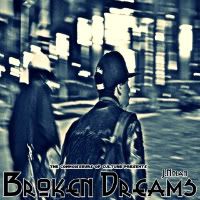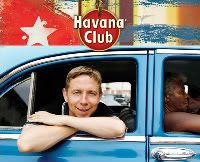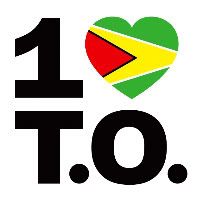Monday, February 28, 2005
Still Takes a Nation of Millions.....

Not a commentary or analysis, just a few choice quotes and observations I managed to catch and write down from the two panels I went to on Saturday. Jay Smooth also has an excellent, far more detailed round up of Friday night than the cursory one I posted Saturday that you definitely need to check out.
"PRODUCING THE ALBUM"
Featuring the original engineers, Greene Street studio owners and members of the famous Bomb Squad production team with Dave Harrington, Rod Hui, Steve Loeb, NickSansano, Chris Shaw, Hank Shocklee, Keith Shocklee moderated by Chairman Mao.
Hank Shocklee talked about how during the recording of "Black Steel in the Hour Of Chaos" they had accidentally left one effects lead half-unplugged and in the process discovered the "filtering" production technique which went on to become popularized by Large Professor, used on many early-mid 90's hip hop records and later a standard pre-set on modern outboard gear. He also recalled how Chuck had a cold and didn't want to cut his vocal but that in the end the effect it had on his voice really captured the emotion they needed on the song.
Engineer Chris Shaw recalled how they set up a phone in a separate room to record Flavor's phone call parts on "Black Steel" but that he went on so long that Hank Shocklee ran into the room to try and cut him off and he shouted, "Hank, don't stop me" which ended up on the record.
The It Takes a Nation of Millions album cost only $40,000 to record (while, by comparison, Yo! Bum Rush the Show cost an even more modest $12,000), while Lyor & Russell had gotten a $225,000 advance from Columbia for it, which meant the album was already way in the black by time the 50,000 retail pre-orders came in.
"Bring the Noise" was 109bpm in tempo at a time when most hip hop was around 95bpm and making a record with a 100bpm tempo was considered pushing it and anything over that was "damn near disco." They were nervous about being so out of step with the sound of the time but when the record dropped, reaction at the storied hip hop club the LQ was "ridiculous." (Hank and Chuck also made an interesting observation at one point during one of the panels about how the sound and fast tempos on PE's records were in sync with the physical reactions cats smoking woolies and crack at the time would have.)
When Hank and the Bomb Squad were comissioned to do a remix for a Vanessa William single and Chris Shaw tried to tell Hank, who was trying to make two clashing samples meld, that it wasn't musical, he responded "Fuck music."
When it came to the rules of music, The Bomb Squad knew what to mess with and what could not be screwed up - that the vocals still had to be clear and the low end, crisp.
A clip of Mr. Magic saying "No more music by the suckers" after he smashed one of their singles into pieces live on air was sampled and used in the "Terminator X to the Edge of Panic" track.
"Nobody got it. So nobody not directly involved in making the music would be allowed in the studio. Russell didn't like it, he didn't believe artists should be political." -- Hank on PE's music.
"Bill Stepheney was the liason between the group in the studio & the label. Damn right he was a producer on the record. We all did everything. Anyone can make a beat - the job of a producer is to make a record happen. Glen Friedman [the photographer] was important...." -- Hank on the issue of who "produced" PE's records.
"Back then the record cover was our video - PE lived off impulse buyers, not off buyers who hear sh-t on commercial daytime radio." -- Hank on not getting radio play and how important their artwork thus became.
The bassline sample on one of the album's songs is "from an English band with 4 guys, a couple of whom are dead." --Chris Shaw cryptically talking about one of the tracks on the album when disussing the samples used on the album and whether they were all cleared or acknowledged.
"Other groups were lifting the talent. The Bomb Squad were making musical statements using samples. There are thieves and there are artists." -- Nick on the art of the Bomb Squad's sampling technique.
"Sometimes Chuck & I would sample a record that sampled the record we really wanted to use just to fcck everyone up." -- Hank on their sampling philosophy and technique.
"Chuck wanted to keep the A and B sides equal for cats who played the tape in their cars so there wouldn't be a long gap while the tape hit the end of one side and auto-reversed. " -- Chris on why the "Security of the First World instrumental track is the shortest one on the album.
"Pre-production is a lost art. We mapped out everything we wanted to do before we got to the studio. There was no writing songs in the studio." -- Hank Shocklee
"The [album] title was already conceived while we were recording Bum Rush" -- Hank Shocklee
"Sequencing is important [because it establishes] the emotional relationship between the songs and the ideas and emotions you want to get across." -- Hank Shocklee
"We always had two rooms [studios] going at the same time." -- Hank Shocklee
"[Producer] Eric [Sadler] hated those sessions. We always had a tape going...." -- Hank Shocklee on the "jam" sessions they held at the Bomb Squad studio at 510 Franklin Street.
"Vamps are another lost art. I'm not interested in linear songs, I'm into songs that have movement but feel linear which is why I always included so many parts." -- Hank Shocklee on song arranging.
"REVOLUTIONARY VOICES"
Group members , Chuck D and the original S1W's, and panelists Hank Shocklee, Daddy O, Fab 5 Freddy and Living Colour's Vernon Reid & Will Calhoun reflect on their experiences. (This panel was supposed to be moderated by Harry Allen but he was AWOL so was moderated by symposium chairperson Jason King)
"It's not about what you get out but what you put into hip hop as a genre." -- Chuck D
"It ain't this big I, little You. Music is to be shared. Music is not a hustle. [Hip hop's become] cultural stripmining [by the major labels]. Some people get into this music to make a killing but music is a way to make a living." -- Chuck D
"PE could never have existed at any other label because Russell was a black entrepreneur and responsible for or connected to the entire black music industry post-1982." -- Hank Shocklee
"We looked at signing to Def Jam as the great surrender." - Chuck D on why he was reluctant to give up their lucrative hustle as hip hop show promoters in Long Island to sign a record deal
"We played off Rick & Russell [like a child does two parents]" -- Chuck D
"We identified more musically with Rick [Rubin] than with Russell [Simmons]" -- Hank Shocklee
"This man was one of the best programmers DJ-wise. If he was programming a radio station in New York, he would change the whole soundscape of radio like he did with music." -- Chuck D on Hank Shocklee
"PE is the sound of naked defiance." -- Vernon Reid
"If you don't understand what Vernon was playing, ask Sammy 'cos he's a real musician." -- Will Calhoun to Alex Van Halen in response to a question about Vernon Reid's guitar playing [I think] when they met backstage one night. (NB: Vernon had played on PE's "Sophisticated B-tch" from their first album and Chuck (and maybe Flav?) guested on a Living Colour track.
"We switched the [album] sides to show America that the rest of the world was already up on it." -- Hank Shocklee on how the album was supposed to actually being with the sequence of tracks that start with "Show 'em Watcha Got" but was switched last minute.
"The best American is one who considers themselves as a citizen of the world." -- Chuck D
"We looked at succeeding in the rest of the world as vital to our survival." -- Chuck D on PE being one of the first hip hop groups to extensively tour internationally at a time when labels didn't really focus on foreign income because of the reduced royalty rates.
"Just like there's a hole in the ozone layer, there's a hole in the musical ecological layer [wrt lack of successful "conscious" music]... 'Traditional' music was brand new at one time... When you hear R&B today, do you believe it?" -- Vernon Reid
"One of things we have to think about is the about the capital of what we do [as musicians] and not just the dividends." -- Will Calhoun
"They took the head [Tavis Smiley] and legs [Teen Summit] off of BET like a 2 person tackle when they sold it to Viacom." -- Chuck D on what went wrong with BET and how it affected the kind of hip hop being made in the mainstream music industry.
"We need to replenish the cultural ecosystem. This music is an important [but] understated rigging of this society." -- Chuck D
"When the silence goes on too long, ignorance becomes the rule." -- Chuck D
"Once you think bigger than yourself then the cause becomes the issue if you think on a higher plain you can come together to work on our problems." -- Chuck D
"When did hip hop culture replace black culture?" -- Hank Shocklee
"The title of the album was taken from a [pull quote in a] Toronto magazine article." -- Chuck D. (T-Dot, stand up!)
Anyone who was also there this weekend and has feedback or additional good quotes or points to include that I missed, holla in the comments sections below.
Tweet

































